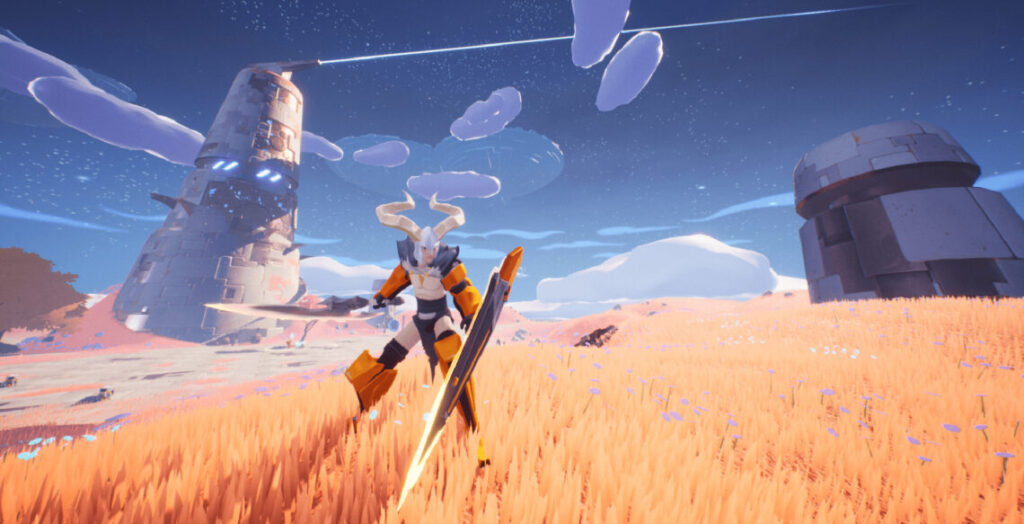Introduction
NFT games are transforming the gaming industry by turning pixels into profit. Unlike traditional games where in-game items are confined to the developer’s ecosystem, NFT games allow players to own, trade, and monetize digital assets using blockchain technology. This convergence of gaming, finance, and blockchain is shaping a new economic model that benefits players, creators, and investors alike.
What Are NFT Games?
NFT (Non-Fungible Token) games are digital games where assets such as characters, skins, land, or items are represented as unique blockchain tokens. Each NFT is verifiable, scarce, and transferable.
Key Differences from Traditional Games:
- Ownership: Players have full control of assets outside the game environment.
- Monetization: Items can be sold or traded on secondary markets.
- Interoperability: Certain NFTs can function across multiple games or platforms.
- Decentralization: Player-driven economies influence the game’s direction.
How Blockchain Powers NFT Gaming
Blockchain technology provides the foundation for NFT games, ensuring transparency, security, and trust.
Blockchain Benefits:
- Verified Ownership: Each NFT’s history is permanently recorded on a decentralized ledger.
- Security: Digital assets are protected from hacks or unauthorized duplication.
- Transparency: All transactions are publicly auditable, preventing fraud.
Platforms like Ethereum, Solana, and Polygon are popular for NFT game development due to their robust smart contract capabilities and scalable infrastructure.
The Economics of NFT Games
NFT games introduce innovative ways for players to earn, spend, and invest. The economics revolve around the play-to-earn model, where gamers generate real-world value from in-game activities.
Revenue Streams in NFT Gaming:
- Play-to-Earn: Completing quests, battling, or staking NFTs can yield cryptocurrency rewards.
- Secondary Market Trading: Players sell rare NFTs on marketplaces, often at significant profit.
- Virtual Real Estate: Platforms like Decentraland allow users to buy, rent, and monetize virtual land.
- Staking & Governance: Some games offer financial incentives for participating in game governance or staking tokens.
Popular NFT Games Driving the Economy
- Axie Infinity: Players breed, battle, and trade Axies, earning SLP tokens convertible to real money.
- Decentraland: A virtual world where landowners host events, build experiences, and earn from rentals or virtual commerce.
- The Sandbox: Creators build interactive experiences, sell digital assets, and earn revenue within a player-driven metaverse.
- Illuvium: Open-world RPG with NFT creatures that players can capture, trade, and battle, providing potential financial rewards.
- Gods Unchained: A blockchain-based trading card game offering true ownership of collectible cards and secondary market opportunities.
These games showcase how NFT economics can merge digital creativity with tangible financial value.

Risks and Controversies
While NFT games present exciting opportunities, they come with challenges:
- Market Volatility: Cryptocurrency and NFT values can fluctuate dramatically, affecting potential earnings.
- Scams and Fraud: New projects may be susceptible to scams or rug pulls.
- Environmental Concerns: Proof-of-work blockchains consume significant energy, though proof-of-stake alternatives mitigate these issues.
- Regulatory Uncertainty: Legal frameworks for NFTs and digital assets are still evolving globally.
Understanding these risks is crucial for players seeking long-term participation in NFT economies.
The Future of NFT Gaming Economics
The future of NFT gaming goes beyond traditional gaming:
- Metaverse Expansion: Integrated virtual worlds where players own digital assets and interact socially.
- Decentralized Economies: Entire in-game economies allow players to earn, spend, and invest with real-world impact.
- Innovative Monetization: Gaming will continue to merge with financial opportunities, offering players new revenue streams and creative participation.
As blockchain adoption grows, NFT games could redefine how we perceive digital ownership and wealth creation.
Conclusion
NFT games are revolutionizing the gaming industry by providing economic value alongside entertainment. From play-to-earn models to virtual real estate, players are discovering new ways to monetize skills and creativity. While risks remain, the potential for digital ownership, financial growth, and metaverse participation ensures that NFT games will continue shaping the future of gaming and blockchain-based economies.


